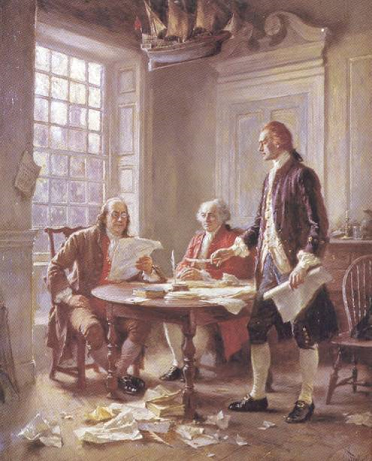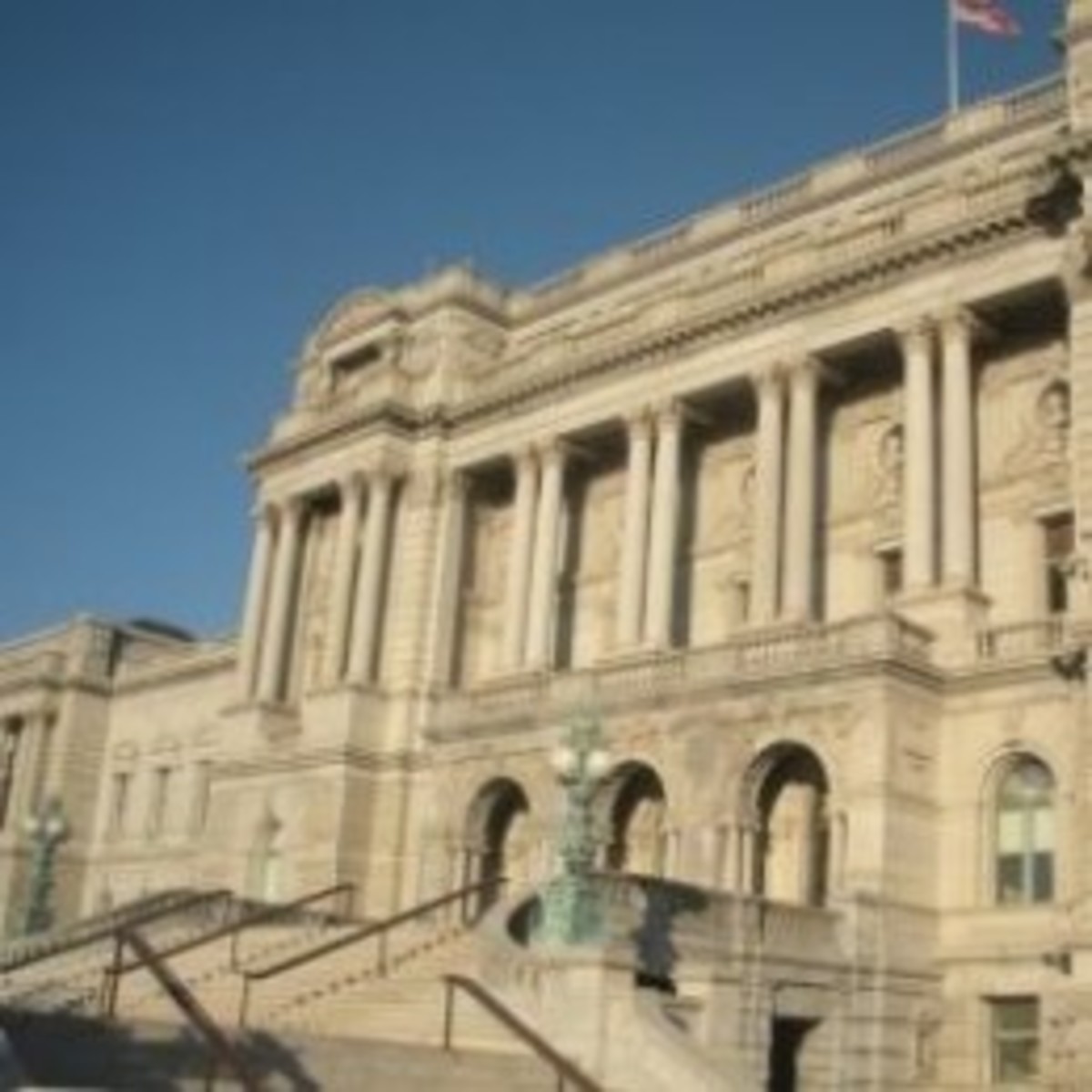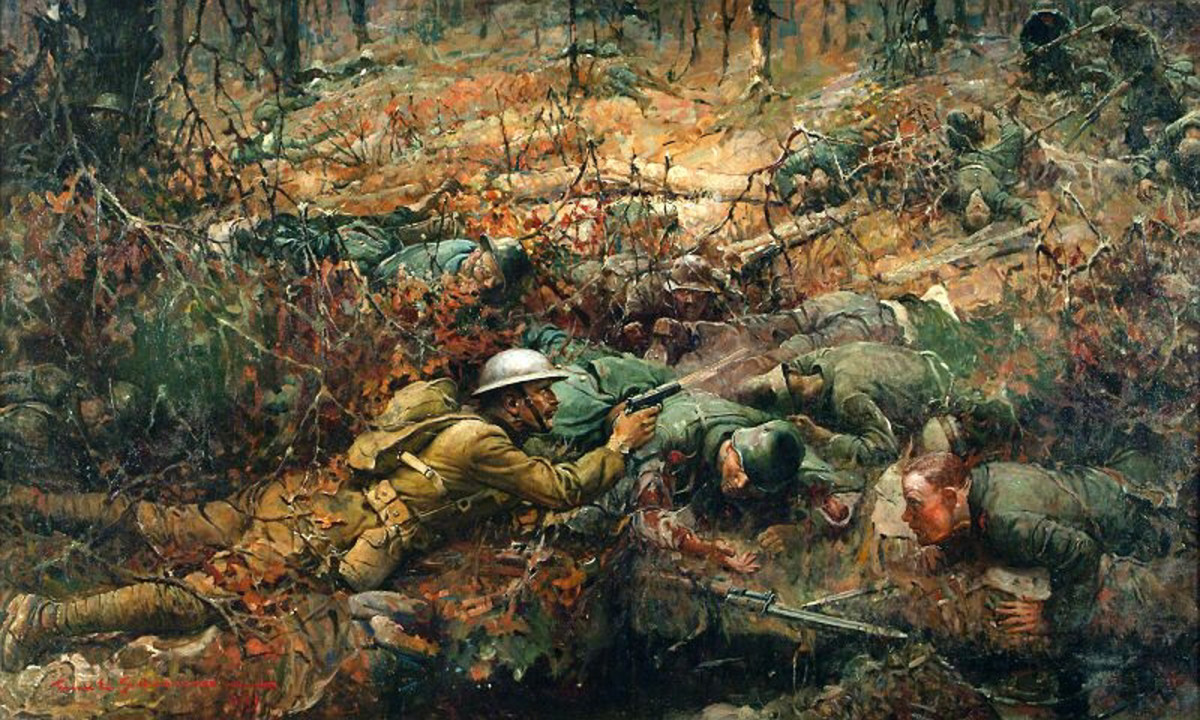What Does “Life, Liberty and the pursuit of Happiness” Mean Today?
Thomas Jefferson, Benjamin Franklin, and John Adams and the Declaration of Independence

Why have I written this?
This is not an essay in the classical sense. It is a statement of some of the facts and events that lead up to the publishing of the Declaration of Independence, along with a recital—more of a light sprinkling really—of some of the beliefs and opinions of Thomas Jefferson that influenced him as he wrote it, and, finally, a smattering of history and of the opinions of yours truly about these matters.
So one might say what I have written here is a bit of a tease, and that is alright, because my intent has been to provoke the reader to delve more deeply into the thinking that went into the Declaration of Independence, and rest of the patrimony those brave souls, who went before, gave us for an inheritance.
Having a better idea of those matters will undoubtedly cause the reader to have a stronger desire to learn more about the great and wonderful gifts we have been given through the sweat, blood, and lives of our heroic ancestors of the revolutionary period.
It is my hope and belief that as people learn more about the history, quality of persons, beliefs, and opinions of our founding fathers; they will be more likely to be well-disposed to Constitutional Conservatism.
The Declaration of Independence
We hold these truths to be self-evident, that all men are created equal, that they are endowed by their Creator with certain unalienable Rights, that among these are Life, Liberty and the pursuit of Happiness.
This, the second sentence in the Preamble of the Declaration of Independence, has been called "one of the best-known sentences in the English language." It remains to this day the most profound, self-evident, and—to sovereigns everywhere, the most gut-wrenching—sentence ever penned and declared by the citizenry of any country. It is without a doubt the most important, straightforward, powerful statement ever set forth of the God-given, sovereign rights of a citizenry.
It has often been used to promote the rights of powerless, downtrodden peoples the world-over, and has come to represent the moral standard the United States should daily vigorously fight to attain. This view was greatly influenced by Abraham Lincoln. He considered the Declaration of Independence to be the foundation of his political philosophy, and promoted the idea that it was a statement of principles through which the Constitution of the United States should be interpreted.
Thomas Jefferson not only wrote that sentence, he wrote every word in the Declaration of Independence in two days. Using, as he said later, neither book nor pamphlet, he produced a stunning statement of the colonists' right to rebel against King George III and the British Parliament, and establish their own.
Jefferson’s draft of the Declaration of Independence was edited by his follow committeemen, John Adams and Benjamin Franklin. They made a few minor changes. Then he, and the four other members of the five-man committee appointed by the Congress to prepare the declaration, presented the Jefferson’s edited draft to the Continental Congress for its consideration. The Congress shortened some passages and eliminated others that some members found objectionable. Still, the Declaration of Independence was Jefferson’s and its elegance came from his heart and mind, and no other. It was finally agreed upon unanimously by the Continental Congress.
It had been left to Thomas Jefferson to start the thirteen united States of America on their way by giving them a seemingly impossible task. He took John Locke’s triad of human rights; life, liberty and property—Jefferson replaced property with “the pursuit of happiness”—and gave the thirteen united States of America a task such as no other civilization had ever dared to set forth as a goal of its people. And the rest, as they say, is history.
“Consent of the Governed” Infers a Republican Form of Government
The Declaration of Independence goes on to state “[t]hat to secure these rights, Governments are instituted among Men, deriving their just powers from the consent of the governed.” This “consent of the governed” infers a republican form of government; a government that governs by the rule of law.
A democracy, it should be noted, is a form of government that governs by the rule of man, and is the antithesis of the republican form. A democracy is never satisfied with its lot. It of necessity always strives for more control. Like a snake, a democracy molts time and again as it grows and gains control over the people under its rule; changing from its most benign form to socialism, then to fascism, and finally to pure democracy, a.k.a., communism.
What is America's true form of government?
Thomas Jefferson on Good Government
Thomas Jefferson said of good government: “A wise and frugal government, which shall leave men free to regulate their own pursuits of industry and improvement, and shall not take from the mouth of labor the bread it has earned - this is the sum of good government.”
As long as there is a United States of America under God, governed by a constitutional republican government, it will remain a beacon of liberty for everyone everywhere.
Life Without Liberty is Not Worth Living
Taking a closer look at the triad of Life, Liberty, and the pursuit of Happiness, we know that without Life there is nothing: no thoughts, no wants, no worries, no blessings. Once given the breath of life, Liberty is the one God-given, unalienable Right necessary to the pursuit of happiness. Liberty is in reality the umbrella under which our individual liberties reside. For a broader, more encompassing, though not exhaustive, list of these liberties, see the Bill of Rights. Truly Life without Liberty is not worth living.
The pursuit of Happiness will require a closer examination to understand just what is meant by that phrase.
A Deeper Look at the Pursuit of Happiness
Much has been written about the phrase, “the pursuit of Happiness.” We know that Thomas Jefferson, the writer of the Declaration of Independence was an admirer of the philosophy of Epicurus and that at the end of a letter to William Short in 1819, he made a summary of the key points of Epicurean doctrine, wherein can be found some of his thoughts on the meaning of “the pursuit of Happiness.” Here is a partial list of the key points of that doctrine:
Moral -
- · Happiness is the aim of life.
- · Virtue the foundation of happiness.
- · Utility the test of virtue.
- · Pleasure active and In-do-lent.
- · In-do-lence [a-tarax-ia] is the absence of pain, the true felicity.
- · Active, consists in agreeable motion; it is not happiness, but the means to produce it.
- · Thus the absence of hunger is an article of felicity; eating the means to obtain it.
- · The summum bonum is to be not pained in body, nor troubled in mind.
- · i.e. In-do-lence of body, tranquillity of mind.
- · To procure tranquillity of mind we must avoid desire and fear, the two principal diseases of the mind.
- · Man is a free agent.
- · Virtue consists in 1. Prudence 2. Temperence 3. Fortitude 4. Justice.
- · To which are opposed, 1. Folly. 2. Desire. 3. Fear. 4. Deceit.
Jefferson firmly believed that his generation’s decision represented a torch of freedom for America. He meant for the phrase “the pursuit of Happiness” to be understood as the enlargement of the human experience through the life of the mind in concert with the spirit. He believed that the system of government the founders were setting up would not work if the people were not educated. "If a nation expects to be ignorant and free, in a state of civilization," he wrote, "it expects what never was and never will be."
Most people today appear to believe that “the pursuit of Happiness” has to do with a person's emotional state. Not true. To the colonists, happiness was not to be equated with hedonism. For them, happiness was the freedom to use their time, talent, and resources to live a life that they believed would bring them the most satisfaction, and would benefit their family, friends, fellow man, and future generations the most. The meaning of “the pursuit of Happiness” remains the same today.
Understanding the Declaration of Independence - 9 Key Concepts Everyone Should Know
Some Events Leading to the Declaration of Independence
The Boston Tea Party
On the night of Dec. 16, 1773, the rebellious act known as the Boston Tea Party was perpetrated. That night a group of American Colonists dumped 342 containers of tea into the Boston harbor.
Not surprisingly, the British were displeased exceedingly by that malevolent act. To show their displeasure the British Parliament passed a series of Acts in response. Soon thereafter General Thomas Gage was dispatched to Boston with several regiments of troops to enforce the recently promulgated Acts of the British Parliament. This caused tensions to spread in British America.
Liberty or Death
In February of 1775, at the provincial congress held in Massachusetts, John Hancock and Joseph Warren began defensive preparations for a state of war. The British Parliament reacted by declaring Massachusetts to be in a state of rebellion.
This act by the British served to invigorate the rebellion such that on March 23 of that year the delegates of the largest colony in America met at St. John’s Church in Richmond Virginia. Resolutions were presented by Patrick Henry putting the colony of Virginia "into a posture of defense . . . embodying, arming, and disciplining such a number of men as may be sufficient for that purpose." Before the vote was taken on his resolutions, Patrick Henry delivered a speech, imploring the delegates to vote in favor of his resolutions. After his speech, a vote was taken and his resolutions were passed—not by much, but they pass they did, and Virginia joined the American Revolution.
The final words of that speech will never die in the memory of Americans, and knowledgeable people the world over who long for the freedom enjoyed by Americans.
Gentlemen may cry, ‘Peace! Peace!’—but there is no peace. The war is actually begun! The next gale that sweeps from the north will bring to our ears the clash of resounding arms! Our brethren are already in the field! Why stand we here idle? What is it that gentlemen wish? What would they have? Is life so dear, or peace so sweet, as to be purchased at the price of chains and slavery? Forbid it, Almighty God! I know not what course others may take; but as for me, give me liberty, or give me death!
Preparations for declaring the independence of British America—the soon to be called the thirteen united States of America—would not be long in coming after that resounding speech by Patrick Henry. The Declaration of Independence was declared on July 4, 1776.
The Declaration of Independence - July 4, 1776
Now it is left to us to save that which the Founding Fathers gave us
The Constitution is Our Basic Rule of Law
For years now there has been a growing liberal tendency to view the Constitution of the United States as a living document. It is not a living document. The Constitution is the fixed foundation of our Republic; the basic rule of law on which all our other laws rest. We must keep our Republic inviolate in order to keep our Liberty. The United States must remain a Republic wherein Life, Liberty, and the pursuit of Happiness are not empty words, but words to fight for, lest our Republic become a Democracy.
Democracy must not be allowed to flourish at the expense of Liberty
In these latter times we have allowed democracy to flourish at the expense of liberty. That democracy is rule by man can clearly to be seen in the recent absolute secrecy maintained in the negotiations by President Obama, and his fellow liberal Democrats in the Congress, to pass his proposed healthcare legislation. I do not mean to imply that only Democrats have been curbing our God-given liberties; Republicans have been complicit in this.
We came within a hair’s breadth of allowing the controlling majority of Democrats to have their way with our liberties in order to saddle us with the president's healthcare plan. Historically, universal healthcare, such as he wanted us to have, has been the last link in establishing the cradle-to-grave care-chain of a typical a typical European-style, socialist, nanny state
This care-chain came close to realization because the Republican Party allowed itself to be co-opted and weakened by the growing number of liberals within its ranks. Thank God for the last minute chink that caused that chain to fall one link short of completion.
Was it the victory of Scott Brown in Massachusetts that was that chink? Maybe;
maybe not. Maybe the Democrats would have failed anyway to come to terms with
that legislation and the hideous, unconscionable payoffs that were being made
to help it limp across the finish line. We do know they were definitely having
trouble without any help from the Republicans.
The Great Turnaround Toward Conservative, Wise, Frugal, Open, Limited Government
The Republicans had a few electoral victories before the showdown on healthcare ended in failure. The last and by far the most telling was the victory of the quasi-conservative Republican Scott Brown in Massachusetts, one of the most liberal states in our country. And, while the winner there was certainly not as conservative as one might have wished, he was far more conservative than his liberal Democrat opponent, and he campaigned with a promise to stop the healthcare bill should he win. And win he did. As you know, the report of that victory was heard around the world.
That win gave added spark to the grassroots movement that had already made its presence known through the efforts of, at first a few, and then a gathering storm of people crying for real change. Conservatives can and must transform this country in the next election.
Can We? Yes, We Can!
Yes, we can! We can win this fight by electing Constitutional Conservative representatives that espouse conservative, wise, frugal, open, limited government.
Our battle plan must be to do all in our power to defeat all Democrats and all the liberal Republicans in both houses of Congress, and replace them with Constitutional Conservative Republicans.
We must let all the liberal Republicans in Congress know by every means at our disposal that they will be defeated if they continue working with Democrats in the spirit of bipartisanship—the ole go-along-to-get-along game that has been all too popular among Republicans for far too long.
Now it is left to us to save that which the Founding Fathers have given us for an inheritance. No one will do it for us; we must do it.
If you liked this article you may like my blog, My Personal Introspections, where virtually everything is in some way about some facet of these words from the Declaration of Independence:
We hold these truths to be self-evident, that all men are created equal, that they are endowed by their Creator with certain unalienable Rights, that among these are Life, Liberty and the pursuit of Happiness.
My Personal Introspections is a Constitutional Conservative blog that espouses Conservative Politics grounded in traditional Christianity and the Christian principles of that tradition that have come down to us from the apostles through the consensus of the holy fathers that came after them.
To paraphrase The Heritage Foundation: The future of liberty depends on reclaiming America's first principles, and getting our country back on course.
When America is governed according to conservative principles, America flourishes! That is the essence of political conservatism and conservative politics.
You may wish to go to their website or call (800) 546-2843 to get a pocket copy of the Declaration of the Independence and the Constitution of the United States.
God Bless America
and the Founders who gave us this Republic. May God bless us to keep it.








